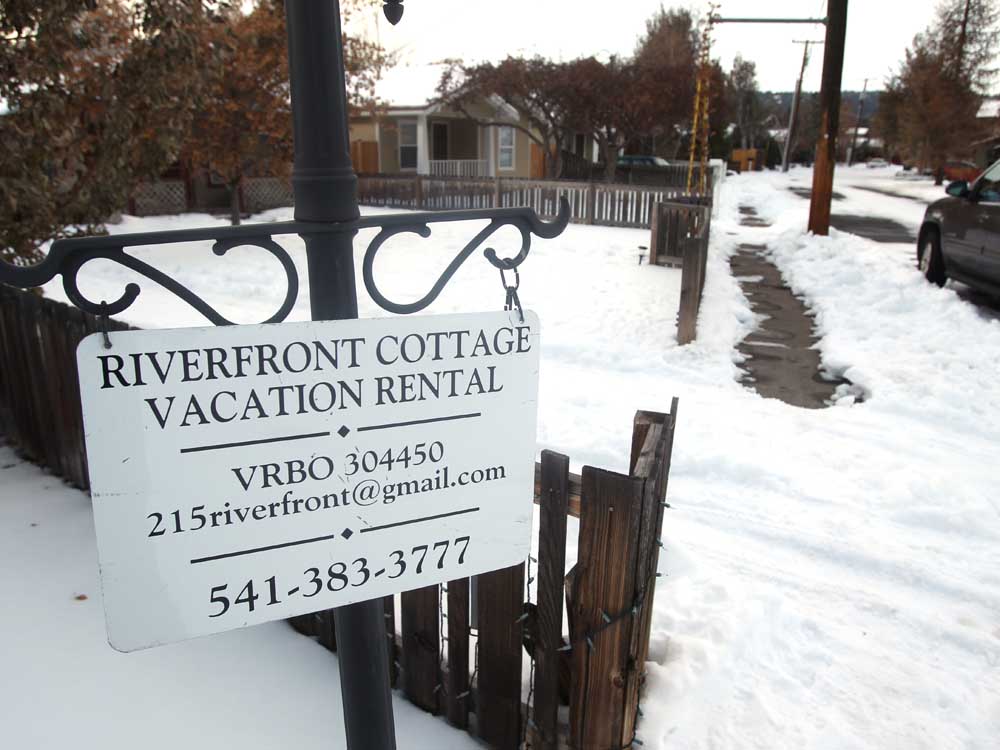Bend City Council considers changes to short-term rental rules
Published 4:15 pm Tuesday, October 4, 2022

-  The Bend City Council is considering changes to rules for short-term rentals. A public hearing will be held Wednesday during the regular council meeting.
The Bend City Council will consider on Wednesday adopting new regulations for short-term vacation rentals such as AirBnBs.
The proposed changes would limit the concentration of short-term rentals in an effort to decrease the likelihood of these types of rentals taking over entire blocks of residential areas. The changes would also attempt to incentivize owners to lease long-term. A public hearing will be held during the regular meeting Wednesday, beginning at 7 p.m., before the councilors vote.
Trending
As short-term rental rules exist today, if an owner wants to live in their property or use it as a long-term rental for longer than 12 months, they must forfeit their short-term rental license. The proposed amendments would allow owners to keep their short-term license if they have a tenant with at least a 12-month lease instead.
The proposed changes would extend the buffer zone for short-term rental eligibility around existing short-term rentals from 250 feet to 500 feet in an attempt to spread short-term rentals out. The change would only affect newly licensed short-term rentals, not existing ones.
After a public hearing with the city’s planning commission last month, some public comments suggested the proposed changes are too stringent.
The Central Oregon Association of Realtors said in a public comment that the increased buffer zone is too restrictive. The proposed changes infringe on private property rights, and Bend’s tourism economy relies on short-term rentals during peak season, said President Cat Zwicker and Cindy King, chair of the organization’s government affairs, in joint statement.
“If the appropriate, existing codes are not being enforced and available resources are not being utilized, addressing these areas is a more logical first step in responding to issues before pursuing a policy change,” they said.
Others think the proposed changes are not enough.
Trending
Gina Franzosa, a Bend resident, thinks the proposed changes should encompass short-term rentals in commercial and mixed-use zones, too, not just residential zones.
“Bend has a housing crisis,” Franzosa, 43, told The Bulletin. “The city needs to be aware of all of the ways that middle-income housing can be lost to vacation rentals, and this is one of them that just appears to have been overlooked.”
The city conducted a survey of short-term rental property owners this spring with 338 of 752 short-term rental owners, or 44%, responding. They found that owners experience demand for short-term housing from traveling and short-term workers, students, people seeking medical care and people moving to the area.
Respondents to the survey said they were concerned that the profits from long-term rentals would come nowhere close to as much as they make renting their property in the short term. Many said they would rent long term if their income was equal to what they make renting short term.
Short-term rentals account for around 2% of Bend’s housing stock, but a report from the city says that as the city grows, so does the number of short term-rentals. The city’s proposed incentive for owners to convert to long-term leases would bring more long-term rentals into the housing stock but at the cost of higher rent prices.
None of the proposed changes address the volume of unlicensed or illegal short-term rentals in Bend.
Wednesday’s public hearing and reading of the ordinance at the regular city council meeting will be the first of two readings before the proposed changes can be officially adopted. The second reading will occur at a council meeting on Oct. 19.








